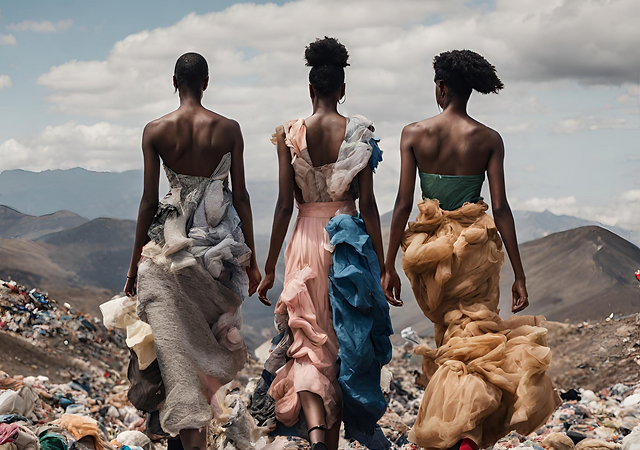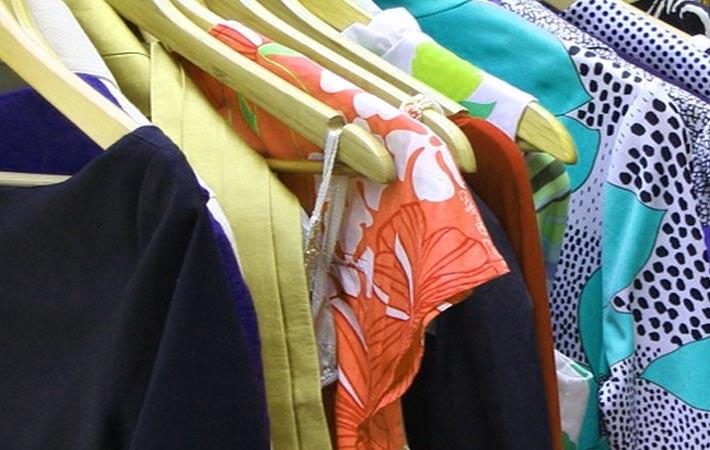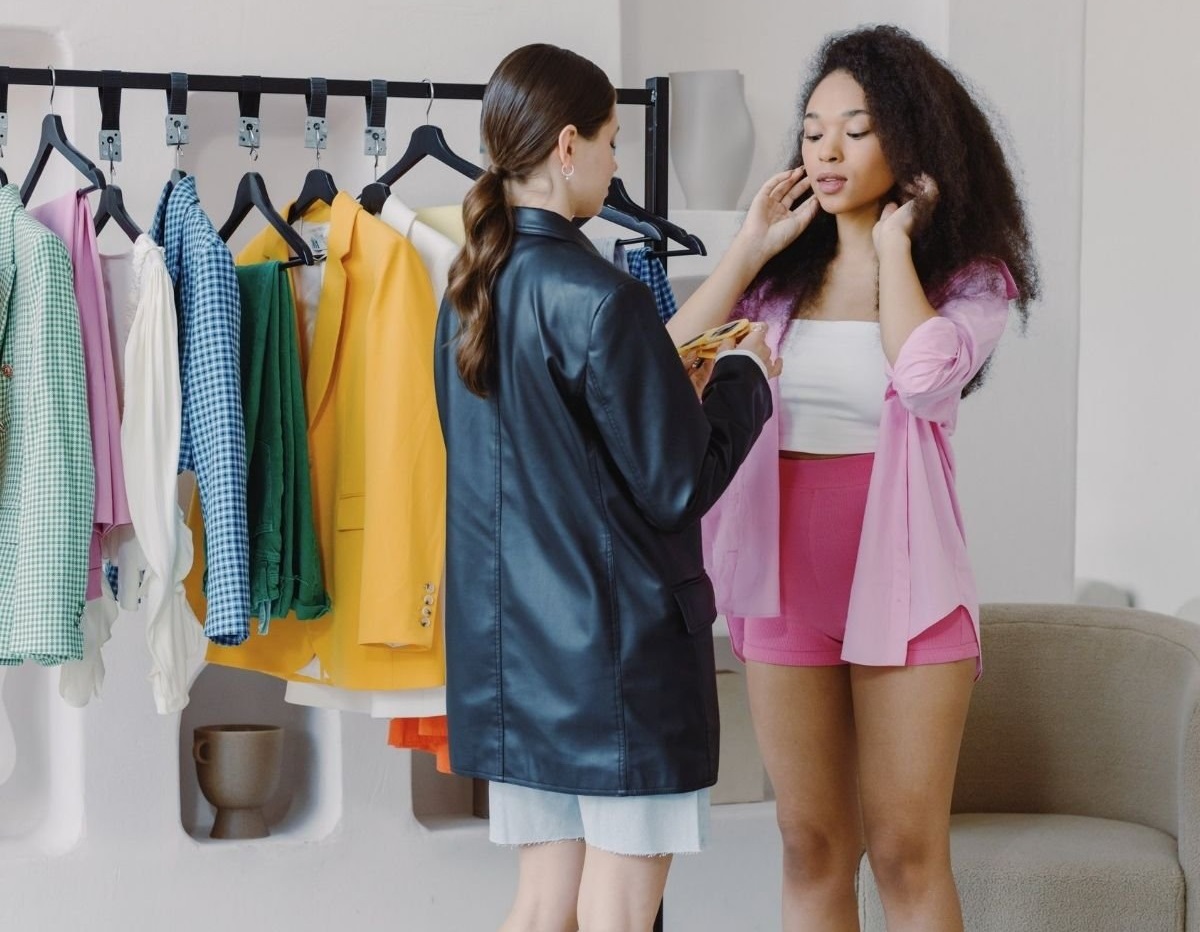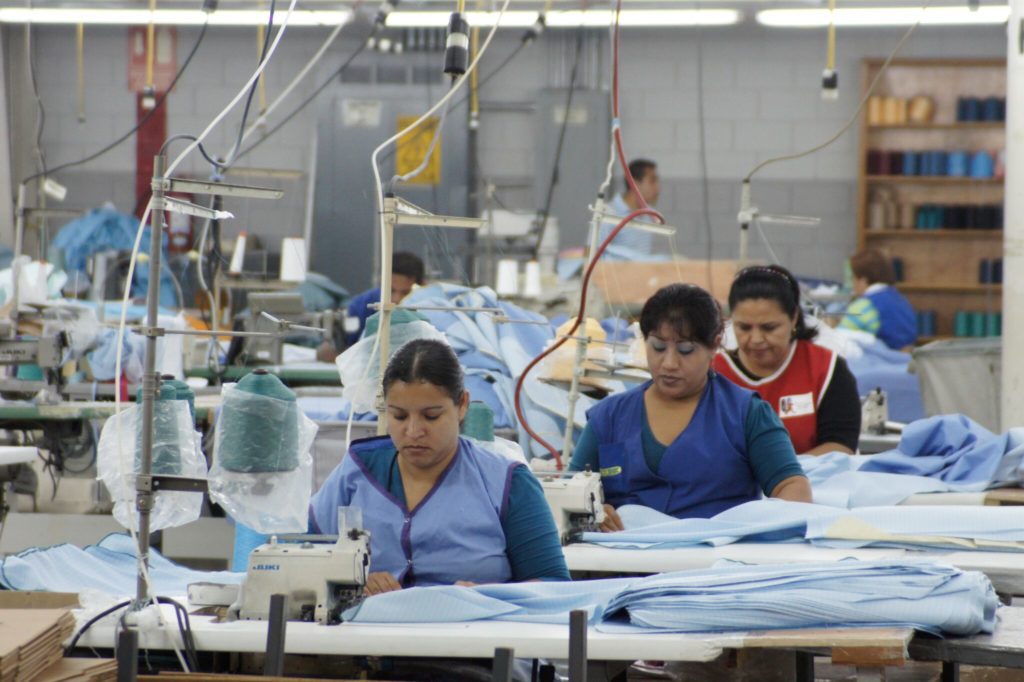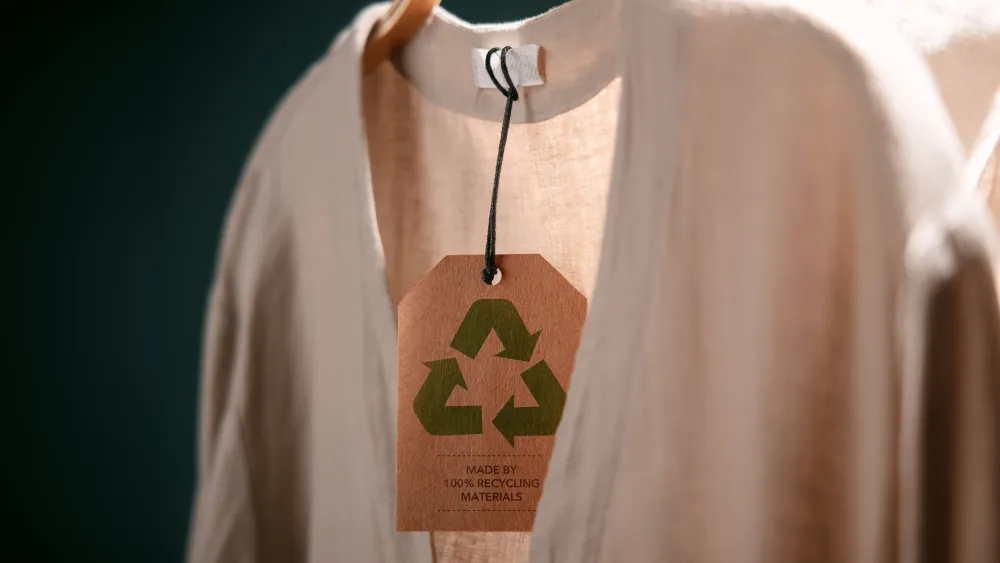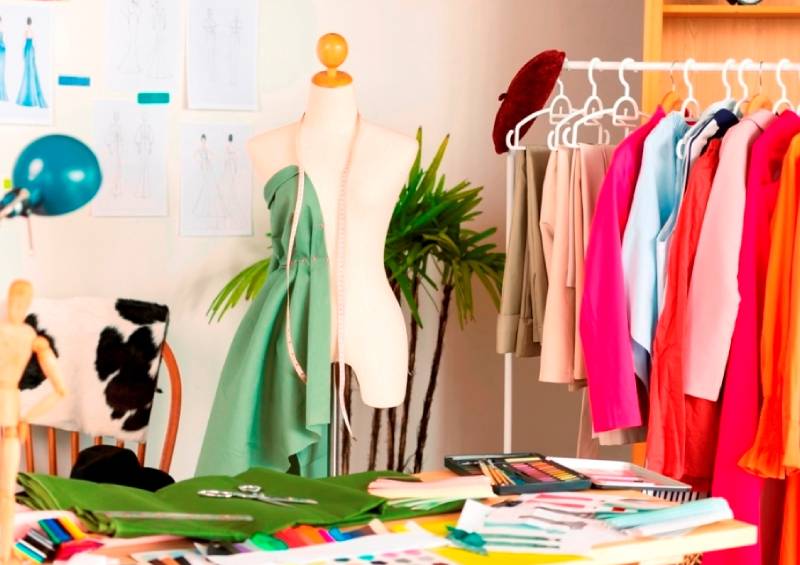FW
In a significant step towards fostering eco-consciousness in fashion, Eastman’s Naia partnered with ESDI Escola Superior de Disseny in Sabadell, Barcelona, for an educational project. This collaboration enabled students to design garments using Naiafibers for a fashion competition inspired by Dante Alighieri's "The Divine Comedy."
The event, held on July 1, 2024, at Alliance Francaise in Sabadell, featured a jury of renowned fashion and textile industry leaders, including Abel Ortiz of Textiles Ortiz, SitaMurt of Montserrat Figueras, designer Claudia Ligari, and Eastman's Carolina Wilches. The project aimed to enhance students' understanding of sustainable practices and the fashion industry's dynamics.
Eastman supplied Naia Renew fibers, made from 60 per cent sustainably sourced pulp and 40 per cent certified recycled content. The recycled component is created using Eastman’s patented carbon renewal technology, which converts hard-to-recycle waste into molecular building blocks. These fibers are biodegradable and compostable, promoting a circular economy in textiles.
The resulting fashion collection, EKOS, was created by ten third-year ESDI students. EKOS explores themes of inner struggle and emotional balance, reflecting the complexity of existence and the search for clarity and peace. The collection was curated by students Mariona Garcia, Ines Borrego, AndraCriado, Julia Escudero, Aurora Gallardo, Claudia Gomez, Ingrid Sala, Sila Sanchez, QueraltTurull, and Aina Vila.
This initiative aligns with Naia's commitment to the UN’s Sustainable Development Goals, showcasing leadership in reducing environmental impact through advanced recycling technologies. Carolina Wilches highlighted Eastman's belief in the power of education to foster sustainability, emphasizing the importance of equipping future designers with tools for responsible innovation. Jorge Zuazo, head of ESDI’s Fashion Design Department, praised the collaboration for providing students with a professional, team-based project experience.
Materra, a British startup founded in 2019, has won the 2024 Avantex Fashion Pitch award for its innovative cotton cultivation solutions. Specializing in climate-adapted, fair-trade cotton, Materra connects fashion brands like Mango and Ecoalf with its producers through a Cotton-As-A-Service model, ensuring full supply chain transparency and traceability.
Frederic Bougeard, President of Messe Frankfurt France, noted that Materra's ambitious approach to a critical issue in the fashion industry greatly impressed both Messe Frankfurt and the jury.
The competition, organized by Messe Frankfurt France, showcases the most innovative and sustainable fashion projects. Eleven finalists, including Darwie, Drippy, Finds, and GoldenEye Smart Vision, each had five minutes to present their ideas to a distinguished jury of industry experts.
Materra's victory comes with significant rewards: a €2,800 stand at Avantex Paris 2025, €2,000 from Texpertise Network, and a year of incubation at Foundry courtesy of IFA Paris. The jury, including Claudia Cesiro, ElodieLemaireNowinski, Jayne Simone Esteve-Cure, and Yoobin Jung, recognized Materra's potential to address urgent environmental challenges in fashion.
With its Austrian operations now insolvent, Esprit's European branch is facing severe financial challenges. The company attributes the insolvency to significant planning issues at its headquarter. Recently, unrest was sparked at the Hong Kong headquarters due to the sale of brand rights for the Greater China region.
Espirit currently does not plan to sustain operations in Austria. This may lead to the potential loss of approximately 170 jobs for the company. The Austrian subsidiary filed for bankruptcy at the Salzburg Regional Court, affecting 173 employees (at peak times, more than 600 were employed).
Esprit still operates twelve of its own branches in Austria, and an additional 23 stores are run by franchisees under the Esprit brand name, although they are not legally affiliated with Esprit HandelsgesellschaftmbH.
According to StapfNeuhauserRechtsanwälte, representing the company, there is no feasible option to continue operations in Austria. Pending the insolvency administrator's decision, remaining stock will be liquidated quickly, shops will close, rental agreements terminated, and the company will undergo liquidation.
Esprit has been present in Austria since 1995, at its peak employing 610 people and operating 26 of its own shops alongside 60 partner stores in 2010.
A tech-enabled fabric sourcing platform based in Jaipur, Fabriclorehas successfully raised $1.6 million in a funding round led by Bengaluru-based PeerCapital and UAE-based Regal Fabrics.
The funding will enable Fabriclore to expand its presence in key markets, including India, the Middle East, Europe, and the US. The startup aims to invest in technology to streamline operations, enhance customer experience, and scale its international market reach.
RajuShroff, Managing Director, Regal Group, avers, with its tremendous potential Fabriclore is poised to extend its reach to several international markets.
Founded in 2016 by Vijay Sharma, Sandeep Sharma, and AnupamArya, Fabriclore is a tech-enabled fabric sourcing platform catering to fashion businesses worldwide. The startup offers made-to-order fabric solutions, including fabric discovery, design, dyeing, printing, and quality inspection, all at a single point of contact. This approach provides lower minimum order quantities (MoQs) for D2C fashion brands and multi-brand retailers.
In six years, Fabriclore has grown into India's largest modern retail brand in its segment, with a catalogue of 10,000 SKUs from over 550 suppliers across the country. In 2023, the company pivoted to enter India’s $20 billion fabric supply chain market, establishing a network of fabric processing units supported by a 10,000-square-foot in-house design, inspection, and testing facility.
Being held at the Bombay Exhibition Centre in Mumbai from July 02-05, the 15th edition of the bi-annual home textiles and homeware trade show, HGH India, showcases around 2,500 product launches from nearly 700 Indian and international brands.
With around 40,000 pre-registrations from over 600 cities and towns across India, visitorsto the show are expected to surpass the 41,240 attendees from last July, says ArunRoongta, Managing Director. The trade show has become a platform facilitating industry growth, trade, design, and innovation, he adds
Inaugurated by RoopRashi, IA&AS, Textile Commissioner, Ministry of Textiles, the show is spread across four halls and 50,000 sq ft. Featuring participants from 32 countries, the event focuses on the domestic market in India.
Highlighting India's significant role in the global textile industry, Rashi says, platforms like HGH India are crucial for uniting the home textiles industry in India as the Ministry of Textiles aims to not only produce the best quality products for both domestic and international markets but also increase employment opportunities in the country.
HGH India caters to home retailers, architects, interior designers, distributors, and institutional buyers. The next edition will be held from Dec 03-06, 2024 in Bengaluru.
The federal government of Australia has introduced a new clothing product stewardship scheme- Seamless to achieve circularity in the apparel industry by 2030.
Starting on July 1, the scheme will enable participating brands to contribute $0.04 AUD for each new garment sold in Australia,
Australia’s massive textile consumption has resulted in a 300,000-ton textile waste problem as on an average Australians purchase 56 new garments a year, as per a report by the Australia Institute.
The scheme should initially focus on better circular design practices, with the possibility of increasing the levy in the future, However, to achieve a true circular economy, the government should increase the contribution from brands to $0.50 per garment, opines Nina Gbor, Director-Circular Economy and Waste Program, Australia Institute.
For Seamless to succeed, participation for all businesses should be mandatory, Gboremphasises. This includes ultra-fast fashion giants like Shein and Temu, which are expected to generate over $2 billion in sales in Australia this year. The competition from these fast fashion companies is forcing local brands to close, impacting jobs and stifling the growth of Australia's textiles industry, she adds.
According to the Australian Fashion Council (AFC), the clothing and textiles industry contributes over $27.2 billion to the economy and employs over 489,000 people. Substantial long-term investments in creating a circular economy would help the sector grow by $10.8 billion in the next decade, AFC projects,
The premium apparel industry is thriving, with a market size of $422 billion in 2023 and a projected CAGR of 3.8 per cent to reach $547 billion by 2030. This growth is fueled by several factors.
The rise of social media has been a game-changer. Luxury brands are leveraging these platforms to connect with consumers on a deeper level, fostering emotional connections through powerful branding. Additionally, globalization and rising disposable incomes worldwide are expanding the market's reach and potential.
However, the industry faces challenges. The blurring lines between luxury and mass-market offerings due to the "democratization" of fashion can impact the perceived value of premium brands. Furthermore, easy online access to product information threatens the aura of exclusivity traditionally associated with luxury.
Despite these challenges, exciting opportunities lie ahead. Emerging markets like China present significant growth potential for premium apparel. Brands can also capitalize on this growth by employing targeted marketing strategies – understanding consumer preferences and leveraging celebrity endorsements and brand culture can be key drivers of success.
The market encompasses North America, South America, Europe, the Middle East and Africa, and Asia Pacific. Clothing, a core component of self-expression, dominates the premium apparel market. Consumers are willing to pay a premium for high-quality clothing that reflects their unique style and status. This trend is expected to continue in the coming years.
The second-hand apparel market is expected to rise past $284 billion by 2030, fueled by a growing taste for sustainable and affordable clothing. This segment, valued at $71 billion in 2022, is projected to rise at over 14.8 per cent annually.
The trend is driven by several factors. The booming e-commerce market offers convenient platforms for buying and selling pre-loved clothes. Consumers are also becoming more environmentally conscious, seeking ways to reduce textile waste and embrace sustainable fashion.
Affordability plays a major role too, with second-hand clothes offering budget-friendly alternatives to traditional retail. The chance to find quality branded items at lower prices is another big draw.
However, challenges remain. The presence of counterfeit goods can erode consumer trust and hinder market growth. Additionally, rapidly changing fashion trends require market players to adapt quickly to fluctuations in demand.
Despite these hurdles, the future looks bright for second-hand apparel. Regions like the Middle East and Africa, with their high demand for affordable clothing, are expected to see significant growth. Europe, with its established thrift culture, is another promising market.
Recent developments underscore the trend. In 2022, H&M launched a pre-owned clothing initiative, while Farfetch partnered with a charity to promote clothing donation. As sustainability and affordability continue to be key drivers, the second-hand apparel market is poised for a long and fashionable runway.
The West Bengal garment industry is set to thrive with the 56th Garment Fair and B2B Expo, held from July 1-3, 2024, at Biswa Bangla (Milan Mela), Kolkata. Organized by the West Bengal Garment Manufacturers and Dealers Association (WBGMDA), the event is expected to generate Rs 850-900 crore in business with the participation of 900 national and international brands.
This significant event underscores its impact on the state's economy, marked by the presence of government officials and key industry figures. Inaugurated by Chandrima Bhattacharya, Finance Minister of West Bengal, and Sujit Bose, Minister of State for Fire, the expo gathered notable personalities such as Pradeep Kumar Nandy, Nirmal Jain, and Ram Chandra Agarwal, among others.
WBGMDA, with 58 years of industry service, has consistently facilitated B2B exhibitions and garment fairs to strengthen the global textile supply chain and support the growth of MSMEs. The non-retail event has evolved into a key meeting point for prominent businesses in Eastern India, significantly contributing to the GDP and job creation.
DevendraBaid, Hony. Secretary of WBGMDA, highlighted the event's longstanding success and the association's role in bolstering the readymade garment sector amid economic fluctuations. President HariKishanRathi emphasized the support received over the years and expressed hope for creating a sustainable environment for future generations, with this meet offering fresh opportunities for all participants.
Despite the textile industry showing recovery signs, garment companies in India continue to adopt a cautious outlook as they await a boost in the momentum of their order books.
As per a report by Avendus Spark, cotton prices in India continue to be lower than global prices, aiding cotton spinners in increasing their volumes. In Q4, FY24, the sector's revenue grew by about 8 percent Y-o-Y, although a 5 percent drop in yarn prices limited overall growth. With cotton prices stabilising, value growth is expected to align with volume growth soon.
Home textile companies reported a strong quarter, with 16 percent growth in value, as Indian exporters gained market share. Despite challenges from price fluctuations, garment manufacturers reported a 4 percent revenue growth, and cotton spinners enjoyed robust margin expansion due to higher utilisation and stable cotton prices.
Indian cotton-related exports rose by 20 percent sequentially and 18 percent Y-o-Y despite a brief period where Indian cotton prices were lower than global prices. Currently, Indian cotton prices are about 13 percent higher than global prices. Garment manufacturers saw EBITDA margins improve by 177 basis points in 4QFY24 due to lower input costs, with vertically integrated players reporting better margin growth.
Home textile companies outperformed with a 15 percent Y-o-Y growth in revenues due to strong demand and increased exports, with India's market share in US cotton sheet imports reaching an all-time high of 62 percent. However, EBITDA margins fell by 80 basis points, suggesting a potential slowdown in volume demand.
Revenues from the man-made staple fibers (MMSF) sector grew by 5 percent Y-o-Y. However, cheaper imports from countries like China and Bangladesh led to pricing pressures. Capacity constraints limited volume growth for MMSF players, though several companies plan to increase capacity in the coming quarters. The Production Linked Incentive (PLI) scheme is expected to encourage further investments in MMSF yarn production.

